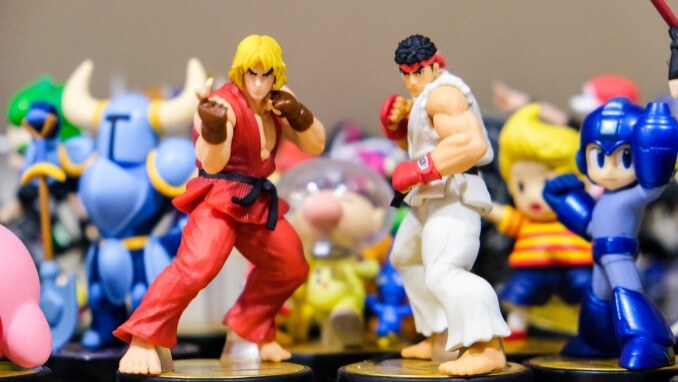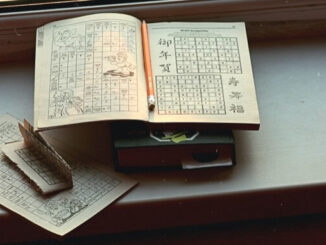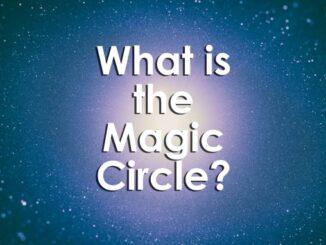
What is Yomi
Yomi is a Japanese term meaning “Knowing the mind of the opponent”. It is also the name of a card game created by David Sirlin. The term is particularly applied to fighting games, and Sirlin’s card game simulates a fight between two characters, similar to games like Street Fighter.
This is interesting, because Yomi (the game) has effectively taken one aspect of another genre of game, and abstracted it to create a new game in its own right. While the characters in the game are fighters, this game is far more about mind games than combat.
The central mechanic is a form of Rock, Paper, Scissors, relating to four kinds of moves – attacks, throws, blocks and dodges. Like Rock, Paper, Scissors it can appear to be a game of ‘guessing’, but the fact that some players consistently ‘guess’ correctly when trying to anticipate their opponent’s moves implies that we are exploring a skill and not chance or coincidence.

But Yomi (the skill) is not intuition. It is using one’s knowledge of the game and the options open to an opponent to calculate their most likely route. Asymmetric design of moves and payoffs for different characters within the game, are part of what makes this work in the Yomi game. Just like their counterparts in the video games it was based on, fighters have ‘signature moves’ – a specific style of play.
Examples of Yomi
In games of hidden information reading the opponent’s body language or having knowledge of their style of play, can help you to make an educated ‘guess’ as to the information that is hidden from you, as well as the opponents most likely move in that situation. A good example of this would be reading ‘tells’ when playing Poker or similar games.

In games where more information is revealed, Yomi is also derived from the information that is in front of you. In games of perfect information, such as chess, all players are equally well-informed. Each position in chess means that there are a number of legal moves which can be made next. However, the last aspect of Yomi means that not all players will be equally able to take advantage of that information to decide the best countermove to stymie their opponent’s emerging strategy.
Because a great part of the skill of Yomi comes from one’s knowledge of the game itself, the rules, and they ways in which moves allowed by the rules can be chained and combined to create play strategies. And the more complex a game is, the greater the advantage in repeated and consistent practice.
Naturally your aptitude at Yomi is likely to increase as you play the game, and that opponent, more frequently
Designing for Yomi
As previously mentioned, the asymmetric gameplay in Yomi, the game, offers the potential for players to predict based on ‘signature plays,. But there are other important considerations when you are designing a game which will allow, and encourage the practice of Yomi – that is, of anticipating and responding.
Over-powered moves are anathema to Yomi, because if there are moves which always or nearly always, prevail, this removes the ability to respond – the basis of Yomi.
Rock Paper Scissors may be very limited in play, but it is perfectly balanced in terms of the power of the moves available, to create a game in which Yomi will work. All three moves are available to each player on each occasion it is played

There should be a number of viable options for moves – but as we can see above, three can be enough, if players are free to choose any of them at any point. If players have no choice in the moves they can make, then certainty replaces Yomi in their opponent’s response. Likewise, for each move, there should be a number of viable countermoves. If one countermove serves to counter any move, this again obviates the need for Yomi.
The idea of ‘moves’ and ‘countermoves’ implies a competitive combat game, and Yomi is often discussed in terms of these kinds of games, but this kind of anticipation is also a feature of other kinds of games, even those which are not competitive or where your ‘opponent’ is the game itself.
The ‘moves’ of a game are emergent from the rules, and the behaviour of other players is a function of winning conditions, and you can exercise Yomi with regard to these in any game which meets the conditions above.
Yomi and Learning Applications
Is Yomi just an interesting mechanic to create fun in a game setting, or is it a skill we can develop that will have application outside of play? It’s undeniable that in business, for example, one would benefit from being able to anticipate the actions of competitors. But it is hard to imagine that playing a game like Yomi, or any other game which teaches the reading of opponents in a limited set of scenarios, would allow us to apply that skill generally in other circumstances.

Unlike some other skills which can be trained generically by playing games, Yomi would seem to be extremely context specific, and may even be particular to facing specific opponents. You could easily imagine creating a game which would progressively allow players to become more proficient in a skill such as basic mental arithmetic – and you can also see how that skill could be applied across many contexts. The practice of Yomi requires knowledge of the ‘moves in the game’ and as each context has its own moves, a general purpose Yomi learning game seems a big ask.
The reading of body language ‘tells’ can certainly be trained, but that is only one part of Yomi. Certainly simulations, if they are sufficiently ‘realistic’ to include the ‘moves’ of the real-life situations, might go some way to train Yomi for specific contexts.
However, probably the most important thing that Yomi in learning games can give us, is the mindset that such anticipation is possible, given practice. If this important belief can be instilled in our learners, then we have helped them to look for opportunities to be observant and anticipatory in real life.
- James Bore – The Ransomeware Game - 13th February 2024
- Ipsodeckso – Risky Business - 23rd January 2024
- Review – Luma World Games - 15th December 2023





Be the first to comment